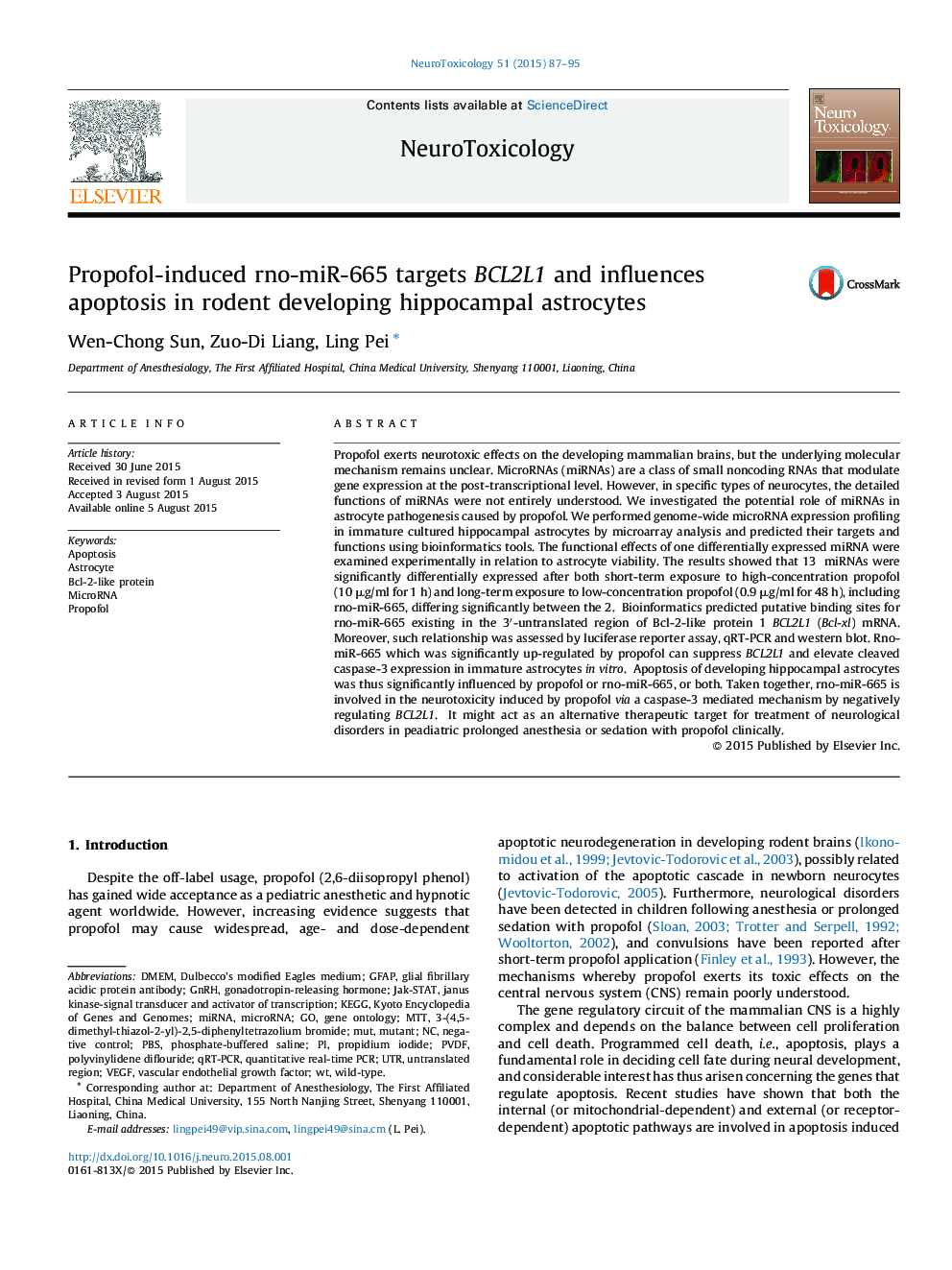| Article ID | Journal | Published Year | Pages | File Type |
|---|---|---|---|---|
| 2589469 | NeuroToxicology | 2015 | 9 Pages |
•Propofol exerts cytotoxic effects on immature hippocampal astrocytes via miRNAs.•Rno-miR-665 targeted genes are mostly related to CNS development and cell fate.•Rno-miR-665 targets anti-apoptotic BCL2L1 under caspase-3-mediated mechanism.•Downregulation of rno-miR-665 protects astrocytes from propofol-induced apoptosis.
Propofol exerts neurotoxic effects on the developing mammalian brains, but the underlying molecular mechanism remains unclear. MicroRNAs (miRNAs) are a class of small noncoding RNAs that modulate gene expression at the post-transcriptional level. However, in specific types of neurocytes, the detailed functions of miRNAs were not entirely understood. We investigated the potential role of miRNAs in astrocyte pathogenesis caused by propofol. We performed genome-wide microRNA expression profiling in immature cultured hippocampal astrocytes by microarray analysis and predicted their targets and functions using bioinformatics tools. The functional effects of one differentially expressed miRNA were examined experimentally in relation to astrocyte viability. The results showed that 13 miRNAs were significantly differentially expressed after both short-term exposure to high-concentration propofol (10 μg/ml for 1 h) and long-term exposure to low-concentration propofol (0.9 μg/ml for 48 h), including rno-miR-665, differing significantly between the 2. Bioinformatics predicted putative binding sites for rno-miR-665 existing in the 3′-untranslated region of Bcl-2-like protein 1 BCL2L1 (Bcl-xl) mRNA. Moreover, such relationship was assessed by luciferase reporter assay, qRT-PCR and western blot. Rno-miR-665 which was significantly up-regulated by propofol can suppress BCL2L1 and elevate cleaved caspase-3 expression in immature astrocytes in vitro. Apoptosis of developing hippocampal astrocytes was thus significantly influenced by propofol or rno-miR-665, or both. Taken together, rno-miR-665 is involved in the neurotoxicity induced by propofol via a caspase-3 mediated mechanism by negatively regulating BCL2L1. It might act as an alternative therapeutic target for treatment of neurological disorders in peadiatric prolonged anesthesia or sedation with propofol clinically.
